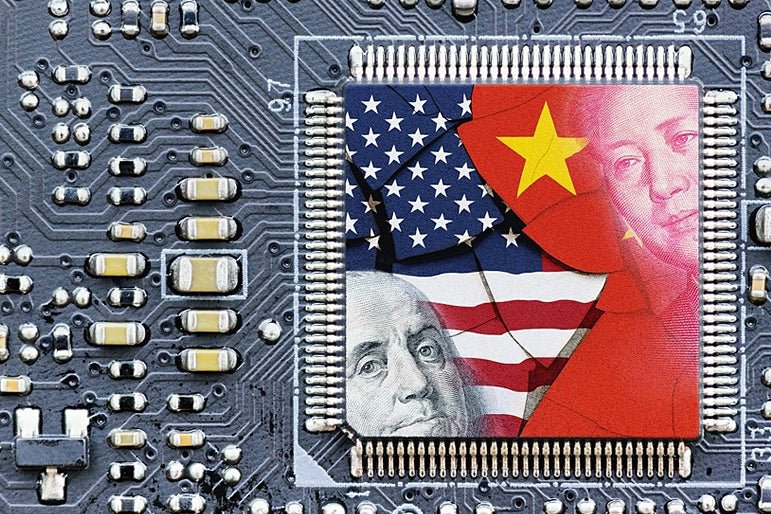The Chinese Foreign Minister, Wang Yi, has criticized the U.S. for monopolizing technology, alleging that it hinders China’s development. This comes amid reports of the President Joe Biden administration pressuring allies to further restrict China’s access to semiconductor technology.
Wang, during a news briefing on the sidelines of China’s National People’s Congress, accused the U.S. of unfairly monopolizing the high end of the value chain, leaving China at the low end. This was in response to a question about the state of U.S.-China relations, reported Bloomberg on Thursday.
“It only wants itself to prosper, but denies other countries legitimate development, where is international fairness? If it persistently monopolizes the high end of the value chain, and keeps China at the low end, where is fairness and competition?” Wang said on Thursday.
Wang’s comments underscore the ongoing tensions between the world’s two largest economies. This is happening as the Biden administration reportedly urges countries such as the Netherlands, Germany, South Korea, and Japan to further tighten restrictions on China’s access to semiconductor technology.
Wang, a member of the 24-seat Politburo, resumed his position after Qin Gang was removed in July. Last year, Qin had cautioned that the escalating U.S.-China tensions could surpass any boundaries in the relationship. This warning came shortly after an alleged Chinese spy balloon disrupted a budding reconciliation.
The U.S. has been implementing various measures to curb China’s technological advancements. This includes imposing restrictions on the export of high-powered AI processors and pushing allies to tighten semiconductor restrictions.
Despite these efforts, China has been making significant strides in its chip development, with its largest chipmaker, SMIC, producing more advanced chips despite U.S. sanctions.
China has also been taking proactive steps to support its AI industry, offering “computing vouchers” to AI startups to address the chip shortage caused by U.S. restrictions. This ongoing tech competition between the U.S. and China has significant implications for global tech leadership and geopolitical dynamics.
In conclusion, the tensions between the U.S. and China over technology monopolization highlight the challenges and complexities of the global tech landscape. As both countries continue to vie for dominance in key technological sectors, the implications for innovation, economic growth, and geopolitical relations remain at the forefront of international discourse.





